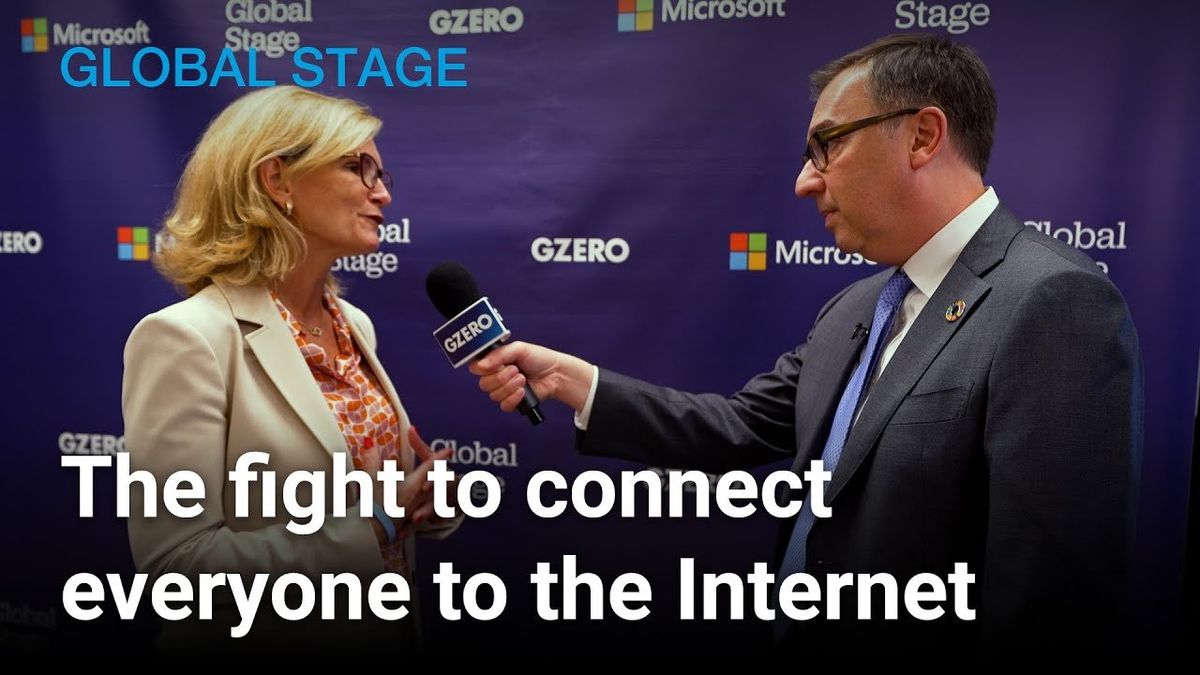Doreen Bogdan-Marin spends a lot of time thinking about how to keep the world connected as the Secretary-General of the International Telecommunications Union. The biggest frontier in that realm is expanding internet access to those in the developing world who struggle to get online.
To that end, she organized Partner2Connect, which hopes to raise $100 billion by 2026 to “connect every last person” on the planet to the internet. Doing so could help progress on the UN’s Sustainable Development Goals, which are woefully behind schedule.
She and GZERO’s Tony Maciulis discussed the potential benefits of worldwide connectivity, as well as AI’s potential to help close the gap.
More at the UN General Assembly: Global Stage.
From Your Site Articles
- No internet, no education, says Vickie Robinson ›
- Should internet be free for everyone? A Global Stage debate ›
- Want Africa to grow? Get people and businesses online: Africa expert ›
- The Graphic Truth: New digital jobs in a post-pandemic world ›
- "Access is a fundamental right" - Digital activist Vilas Dhar - GZERO Media ›
- Live premiere: Gender Equality in the age of AI - GZERO Media ›


















